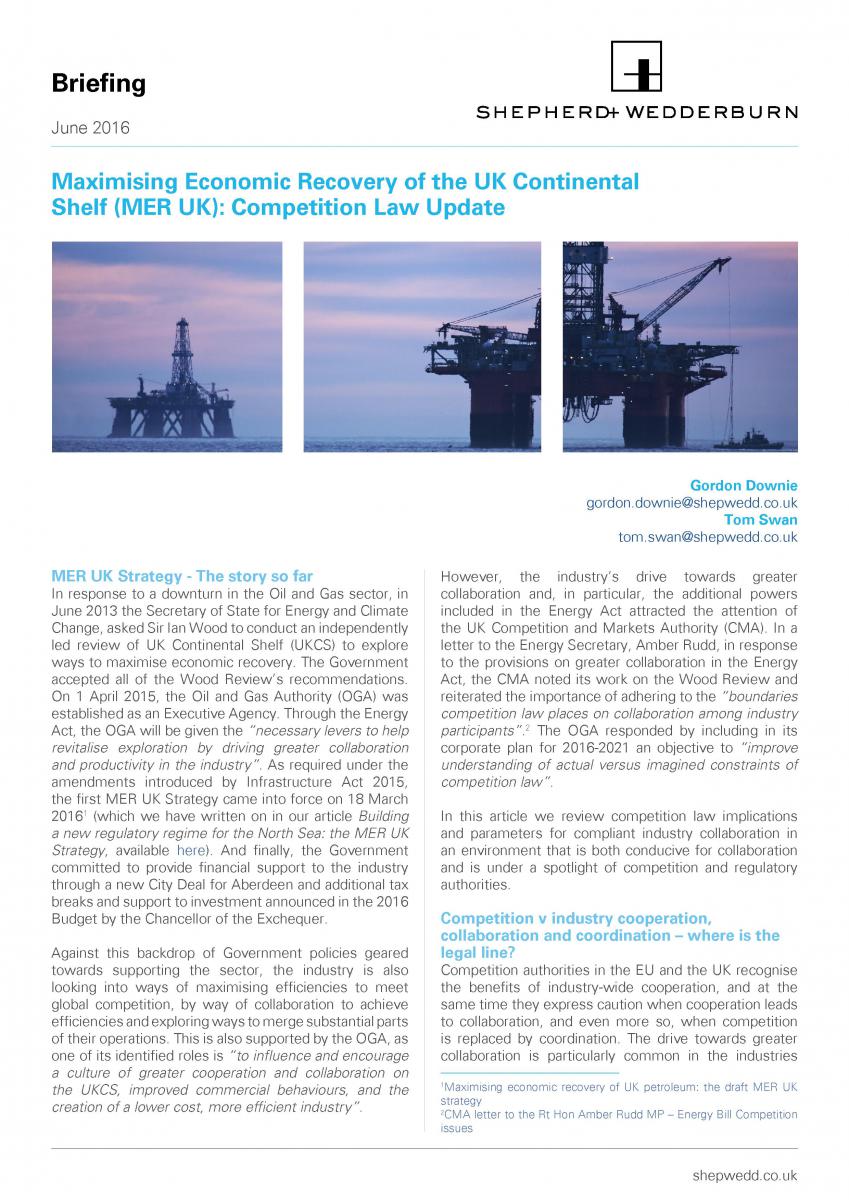MER UK Strategy - The story so far
In response to a downturn in the Oil and Gas sector, in June 2013 the Secretary of State for Energy and Climate Change, asked Sir Ian Wood to conduct an independently led review of UK Continental Shelf (UKCS) to explore ways to maximise economic recovery. The Government accepted all of the Wood Review’s recommendations. On 1 April 2015, the Oil and Gas Authority (OGA) was established as an Executive Agency. Through the Energy Act, the OGA will be given the “necessary levers to help revitalise exploration by driving greater collaboration and productivity in the industry”. As required under the amendments introduced by Infrastructure Act 2015, the first MER UK Strategy came into force on 18 March 20161 (which we have written on in our article Building a new regulatory regime for the North Sea: the MER UK Strategy, available here). And finally, the Government committed to provide financial support to the industry through a new City Deal for Aberdeen and additional tax breaks and support to investment announced in the 2016 Budget by the Chancellor of the Exchequer.
Against this backdrop of Government policies geared towards supporting the sector, the industry is also looking into ways of maximising efficiencies to meet global competition, by way of collaboration to achieve efficiencies and exploring ways to merge substantial parts of their operations. This is also supported by the OGA, as one of its identified roles is “to influence and encourage a culture of greater cooperation and collaboration on the UKCS, improved commercial behaviours, and the creation of a lower cost, more efficient industry”.
However, the industry’s drive towards greater collaboration and, in particular, the additional powers included in the Energy Act attracted the attention of the UK Competition and Markets Authority (CMA). In a letter to the Energy Secretary, Amber Rudd, in response to the provisions on greater collaboration in the Energy Act, the CMA noted its work on the Wood Review and reiterated the importance of adhering to the “boundaries competition law places on collaboration among industry participants”.2 The OGA responded by including in its corporate plan for 2016-2021 an objective to “improve understanding of actual versus imagined constraints of competition law”.
In this article we review competition law implications and parameters for compliant industry collaboration in an environment that is both conducive for collaboration and is under a spotlight of competition and regulatory authorities.
1 Maximising economic recovery of UK petroleum: the draft MER UK strategy
2 CMA letter to the Rt Hon Amber Rudd MP – Energy Bill Competition issues
